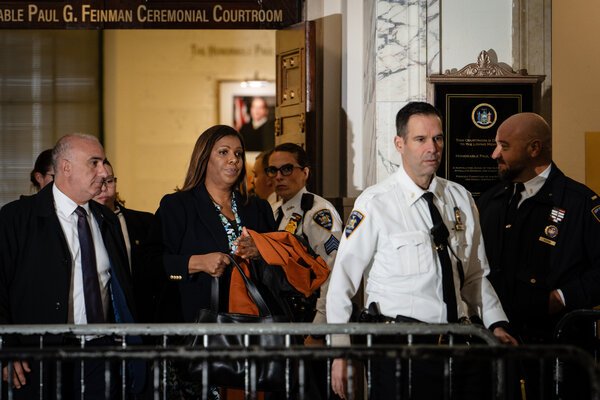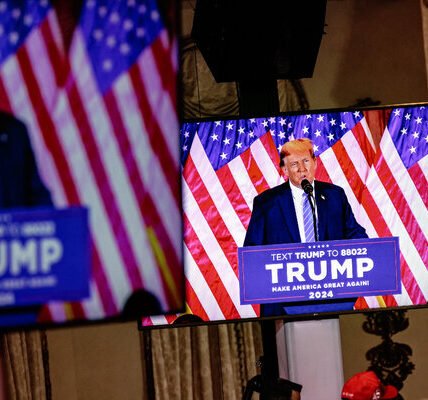New York A.G. Seeks $370 Million From Trump After Civil Fraud Trial – The New York Times
Advertisement
The penalty was well over the $250 million that the attorney general, Letitia James, had estimated in the fall of 2022, when she sued the former president.

The New York attorney general on Friday asked the judge who had overseen the civil fraud trial of Donald J. Trump to penalize the former president about $370 million, saying the trial had demonstrated that he had gained that amount through unlawful conduct.
The sum was well over the $250 million that the attorney general, Letitia James, had estimated in the fall of 2022, when she sued Mr. Trump, accusing him of inflating his net worth to obtain favorable treatment from banks and insurers.
The trial began in October and proceedings ended last month, but Mr. Trump’s fate is not yet settled. The attorney general’s penalty request came in a post-trial brief filed on Friday. Mr. Trump’s lawyers, in one of their own filings, wrote that “the attorney general has woefully failed to prove her case and is not entitled to any of the relief,” including any financial penalty.
A lawyer for Mr. Trump did not immediately respond to a request for comment on the $370 million figure.
Next week, the lawyers will make closing arguments in front of the trial judge, Arthur F. Engoron. The nature of Ms. James’s lawsuit meant that there was no jury; Justice Engoron has said he will try to issue a ruling on the case by the end of this month.
Along with the steep financial penalty, Ms. James, a Democrat, is asking that Mr. Trump, a Republican, be barred from participating in New York’s real estate industry and from running any company in the state.
Justice Engoron, also a Democrat, has in the past been persuaded by Ms. James’s arguments. Before the trial began, he ruled in her favor, finding that Mr. Trump had committed fraud by inflating the value of his assets, and thus, his net worth. The bulk of the trial concerned whether the former president’s conduct had violated other New York laws, as well as the potential consequences for his wrongdoing.
The trial was a contentious affair, as lawyers for Ms. James and Mr. Trump clashed on issues major and minor, and the former president frequently attended the proceedings, using the hallway outside the courtroom as a campaign stop. There, he inveighed against the attorney general, the judge and the judge’s chief law clerk, whom he attacked as politically biased, prompting Justice Engoron to issue a gag order barring Mr. Trump from commenting on court staff.
The former president’s lawyers argued that the proceedings had stemmed from Ms. James’s political bias, and they repeatedly moved to derail the trial, calling multiple times for a favorable verdict based on what they said was a lack of sufficient evidence. Justice Engoron was unconvinced. On Dec. 18, five days after the proceedings ended, the judge denied the motions, appearing dismissive of Mr. Trump’s case.
He wrote that some of the lawyers’ arguments “personify frivolity,” took issue with the testimony of their financial experts and again took issue with Mr. Trump’s often-raised argument that the valuation of the assets in question was subjective.
“Let no one be fooled,” Justice Engoron wrote. “Valuations, as elucidated ad nauseam in this trial, can be based on different criteria analyzed in different ways. But a lie is still a lie.”
Advertisement



